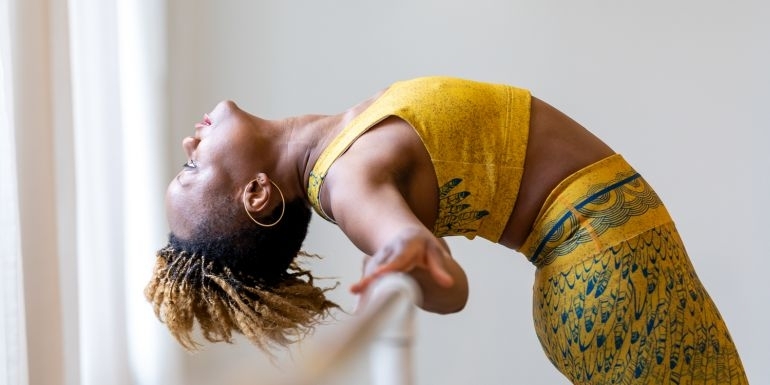
LIFE IN AFRICA
DP: People go to Africa to get more freedom in life. They go to see how people live there. This way they can appreciate their life. And suddenly they get shocked. Africans who were supposed to be poor and sad are… poor and happy! The lack of basic conditions, such as access to water or electricity, do not take away the everyday smile!
I ask my students after their return from Angola: "How was it?", and all I hear is: "Dúniaaa...". And that ends the conversation. They get together for a week.
What did they discover there? Naturalness, truthfulness, simplicity. In the corners of Africa you can experience a life that is inimitable. It is a world of many contrasts. Hardly anyone argues that they received a dirty glass in a restaurant and will make scandals because of it. And when suddenly there is no electricity for 2 hours, there is always a solution - you can go out dancing.
FAMILY, NEIGHBOURS, FRIENDS
DP: 11 people in one room... is that a lot? Parents, three brothers, sister, grandmother, mother's siblings. All on some ... m2. It was tight, but there was what was most important: closeness, support and laughter. And singing and dancing. Lots of dancing.
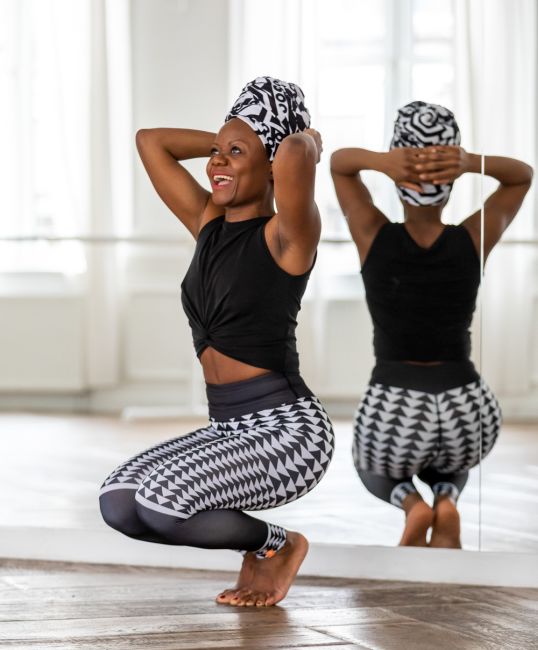
DANCE, HABIT, FAMILY HOME
DP: In my opinion, it is difficult to find an analogy in Polish to what DANCE means to Africans. I will try to compare it to brushing my teeth.
Our parents once taught us this activity and introduced it to our daily routine. Now we grab the toothbrush and toothpaste automatically. We also have it written in our heads that if we don't brush our teeth, we will feel discomfort. This is also the case with dance among Angolans (laughs).
Okay, it's a bit of an understatement to call oral hygiene our passion, but you know what I mean.
It's not like you're thinking about dancing in Africa. This is your natural need, without which something hurts you inside. It is a primal movement, expressing satisfaction with life, gratitude, closeness, love, but also interest in another person. Dancing is a trigger of emotions. It brings people together despite their differences.
KIDS
DP: I show my children who I really am. As "Mom" I also introduce myself to them as a woman, partner, and dance instructor with passion. They know me from every angle.
I am a mom who will dance freely at the tram stop. I am a mom who loves her job. I am a mom who moves, rests, cleans, travels, develops.
I want to show them that you can be yourself, you can be grateful for what you have, you can make your dreams come true. And I don't want my children to do what I do in the future. No. The goal is to develop self-confidence, dreams and ideas that may seem “stupid” to others (and even sometimes to me).
Recently, my children started watching me during yoga sessions at home. They got in. Now they can do more poses than me! What's more, they catch poses names faster and are now practising on their own with the program! From what I observe, children with courage and high motivation approach what they like to do. Adults sometimes think it's just fun for them, but they take it seriously.
Do I dance with my children? Sure! But not as an instructor. I return with them to the roots and at home, during everyday duties, we make time more pleasant by swinging our hips. I give them the opportunity to experience the culture of Angola while living in Warsaw.
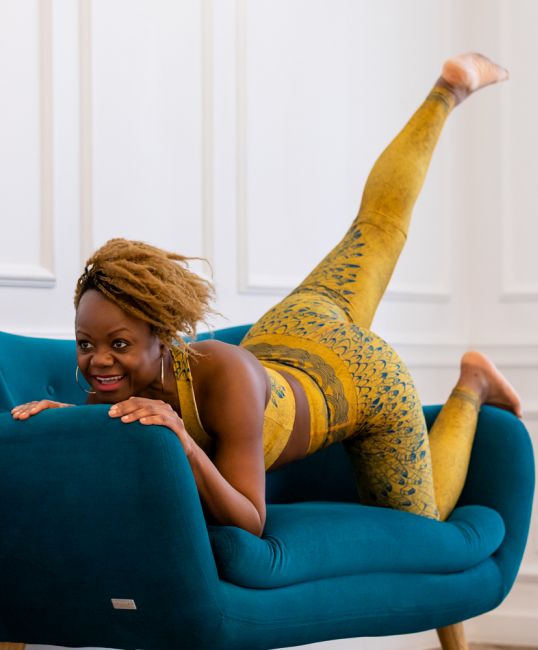
POLAND
DP: At the age of 13, I came to Poland. I didn't speak Polish, I didn't speak English. I only knew Portuguese. So I started learning… Long story short, it was difficult, but also fun. My favourite word is "Brzęczyszczykiewicz". After all, in Poland I am fluent in my hips and tongue (laughs). And that's my best argument when someone puts off dancing thinking it's just in my blood. Then I answer: "If I learned Polish, then you will be able to move like this".
DANCE, A SYSTEM FOR POLES AND EUROPEANS
DP: "Here and now" is the disposition of the Angolans. Today is now, tomorrow - you don't know. It's important to have something for dinner today. While we can, let's live and dance!
Right leg, left leg, hips, chest, hands up, pure pleasure! I thought that this is how I would teach dance in Poland. However, I quickly fell to the ground. At first, the students couldn't figure out which side was which. I tried to put it down to my limping Polish. It never occurred to me that someone could have such a completely different sense of rhythm. In Angola, you see a new step and you get it, without detailed instructions.
So I started learning to dance with learning to walk. Walking is the basis. This, how we put our feet on the floor, how our hips are arranged during the process, what body posture we adopt - it says a lot about a person. The priceless moment comes when the students' husbands ask them what the class was like, and they reply: "We walked for two hours" (laughs).
It took a while for me to open up and get used to the "Polish system of dance education". I developed a deep conviction that anyone who is drawn to dance can dance. I don't grade in class. I enjoy what I see! I look at the hips, I come over, I suggest something. I am focused on the participants, on movement, on making the atmosphere during the classes supportive.
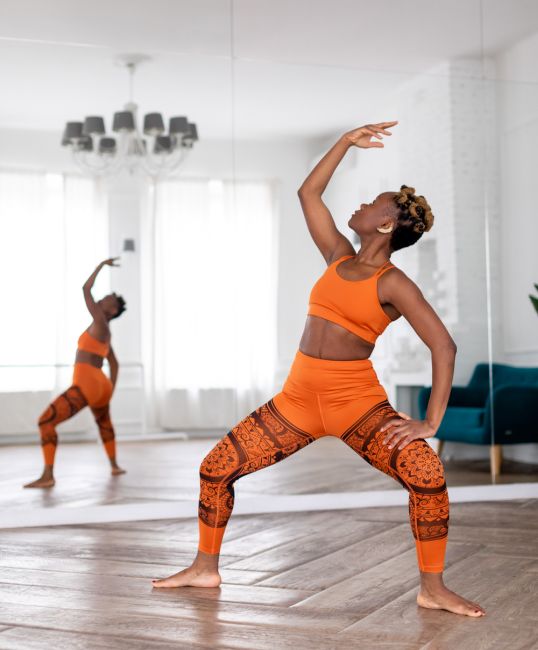
DANCE AND COURAGE
DP: "What happens if you make a mistake? It doesn't turn out the way you expect? Will the world end?" I ask such questions sometimes when I see that someone is afraid and blocks the joy of dancing.
I am the instructor who is not only the first to make a mistake in choreography, but also the first to sweat! And I'm cool with it, at least it's fun and without a stick up your ass.
BODY AWARENESS AND THE RELATIONSHIP WITH ANOTHER MAN
DP: Bam! And here turns out that dance is in your head, even if you have the biggest swings in the world! The condition is a good base - the one that is in your inner man. When someone comes up to you to dance, your body immediately sends the message: "Hello, base? All right?".
And everything works when you are in touch with yourself. You stick to your values, you care about your life energy and happiness. You know your limits, you know where it ends. A good and true relationship with yourself is often a good and true relationship with another person. Also while dancing.
KIZOMBA, FREEDOM, SEX
DP: How much did you have to sweat to introduce kizomba to Poland... A strange man dancing with a strange woman in such close physical contact was a sexual excess. The movements showed embarrassment, shame, lack of contact with the base and lack of understanding of what was happening to the body. Kizomba is not an invitation to bed. The pelvis loves freedom and movement - regardless of gender.
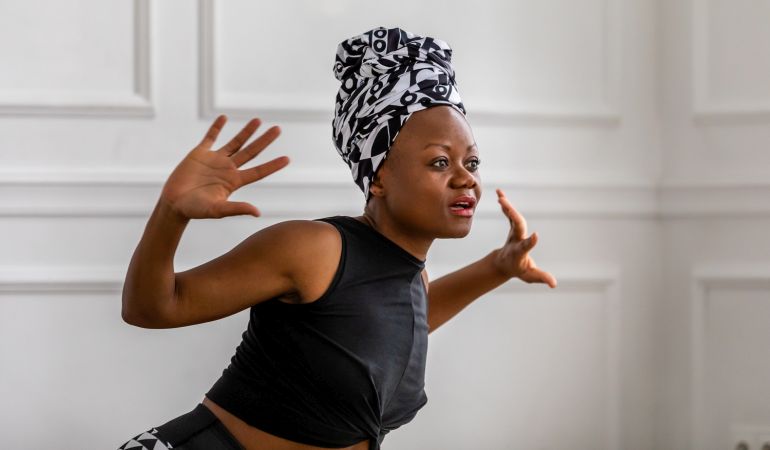
UNIQUENESS
DP: In Angola, nobody tells anyone: "Stand out!". Uniqueness is something natural, obvious. Being yourself is an innate skill. That is why, from my perspective, a lot of people in Poland are reluctant to dance - because suddenly you need to chill out, let go, get carried away. Give up self-sabotage and comparing yourself to others.
EMOTIONS, FREEDOM
Emotional anaesthesia is something that moves me especially during classes. I notice who carries a shield that has been built up over years of hard experiences. The body, wanting to avoid unpleasant stimuli, also becomes resistant to those that support it.
It often takes many hours to allow yourself to release all these emotions. Then wonderful things happen. Often there is crying, liberating and purifying. The body opens up to receive. It also happens that these tensions are so deeply embedded that it is worth combining dance with coaching sessions, psychotherapy or rehabilitation.
WHAT IS DANCE?
DP: I admit that I didn't think about it until I came to Poland (laughs). How can you even wonder what DANCE is? This question kept popping up, though, so I looked for an answer.
I just feel the dance. It's my natural movement and form of communication. It's my body language. I translate it by analogy: kimbundu - it's my ethnic language, Portuguese - it's my native language, and I treat dance as a mother tongue - literally and figuratively.
I "sucked the love of dancing with my mother's milk", and when I started walking, I immediately danced with my mother, for me a role model of femininity. I grew up in dancing. In dance I learn myself, I build my character, I strengthen my body and mental resistance, I nurture my sex appeal.
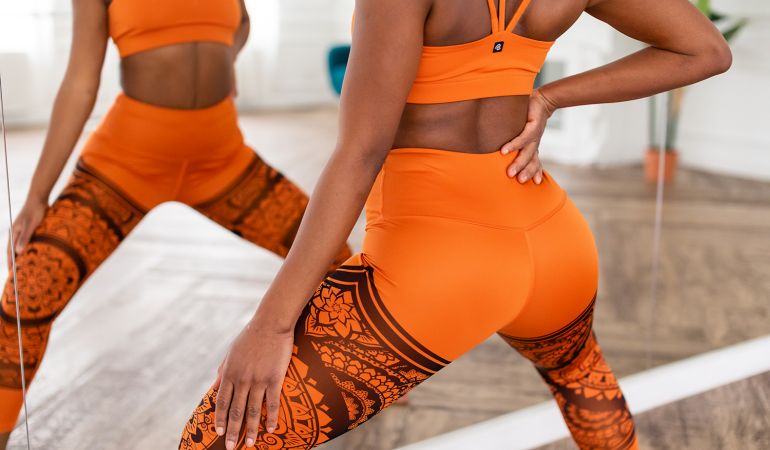
Please do something for yourself at the end.
Stand in front of the mirror.
Move your hips.
Write what triggered it in you.
Thanks a lot!
Dúnia
Dúnia Pacheco - dance mentor, founder of the multi-generational group ConfiDANCERS and the first African revue Mulemba in Poland. She was born in Angola, and since 1999 she has been living in Poland and it is here that she teaches women to discover themselves, strengthen self-confidence and self-acceptance through DANCE.


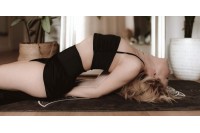
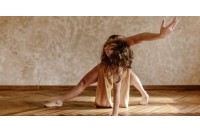
2 Comments
I do not even know how I ended up here, but I thought this post waas good.I do not know who you are but definitely you\'re going to a famous blogger if you aren\'t already ;) Cheers!Also visit my webpage: boyarka
Saverd as a favorite, I love your website!Here is my blog ... boyarka